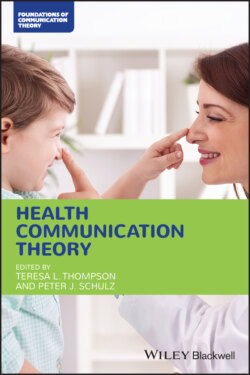Читать книгу Health Communication Theory - Группа авторов - Страница 36
Theory as Process
ОглавлениеResearch methods and theory development are intimately connected in the grounded theory approach with researchers placing particular emphasis on the comparative process. Indeed, Glaser and Strauss (1967) originally claimed that the “strategy of comparative analysis for generating theory puts a high emphasis on theory as process; that is, theory as an ever‐developing entity, not as a perfected product” (p. 32). As researchers gather data, they compare new data to existing data, sort those data into meaningful and related categories, and then expand or alter existing categories as needed for theoretical sampling. This process of constant comparison occurs at every step of the research process as scholars compare and refine data and emerging findings. Researchers also consult extant research throughout data gathering and analysis, using it to make sense of emic (participant) categories and drawing relationships to etic (researcher and theoretical) ideas that may be used as sensitizing concepts for further analysis. These comparisons occur within an evolving study design in which research questions are shifted, added, or deleted as initial findings prompt new forms of data or additional data from new participants. Ideally, the goal is to abstract categories into a single statement of theory; however, most health communication research stops short of new theory generation, offering useful typologies, extensions to current theory, or pragmatic implications for improving communication instead (Ellingson and Borofka 2014).
Glaser and Strauss (1967) introduced grounded theory as a way to develop theories from research rather than deduce testable hypotheses from existing theories. This traditional systematic formulation was steeped in the tenants of positivism pervading social sciences at the time and focused on discovering themes that emerged naturally and dispassionately from the data. They originally believed that (i) theory is embedded in and emerges from the data; (ii) researchers should remain objective during data collection and analysis (and even save the literature review until after analysis to ensure a blank slate); and (iii) even without one truth, research can capture a semblance of reality in the data and present that reality as a set of theoretical findings (Corbin 2009). Later, Strauss broke from Glaser and, with his colleague Juliet Corbin, recast grounded theory in a post‐positivist vein. Their evolved conceptualization (Strauss and Corbin, 1990) acknowledged the researcher’s more active role in generating themes while still emphasizing validity checks and systematic procedures for doing so.
More recently, medical sociologist Kathy Charmaz (2006) situated grounded theory within social constructionism, contending that researchers create both data and analysis from shared experiences and relationships with participants and other sources of data, including the researcher’s own perspectives, positions, and privileges. Unlike earlier conceptualizations of grounded theory, she claimed that theories do not emerge from the data but are instead constructed through the researcher’s past and present participation in the social world. Constructivist grounded theorists take a reflexive stance toward the research process and products to consider how theories evolve from shared meanings and situated practices. From this perspective:
Theorizing means stopping, pondering, and thinking afresh. We stop the flow of studied experience and take it apart. To gain theoretical sensitivity, we look at studied life from multiple vantage points, make comparisons, follow leads, and build on ideas… The acts involved in theorizing foster seeing possibilities, establishing connections, and asking questions.
(Charmaz 2006, p. 244; emphasis in original)
This approach explicitly assumes that any theoretical rendering offers an interpretive portrayal – rather than an exact picture – of the studied world (Charmaz 2006, p. 17). While all approaches to grounded theory can be found in health communication literature, the post‐positivist and social constructionist types are far more common than the original conceptualization, paralleling larger trends in qualitative methodology (Ellingson and Borofka 2014).
